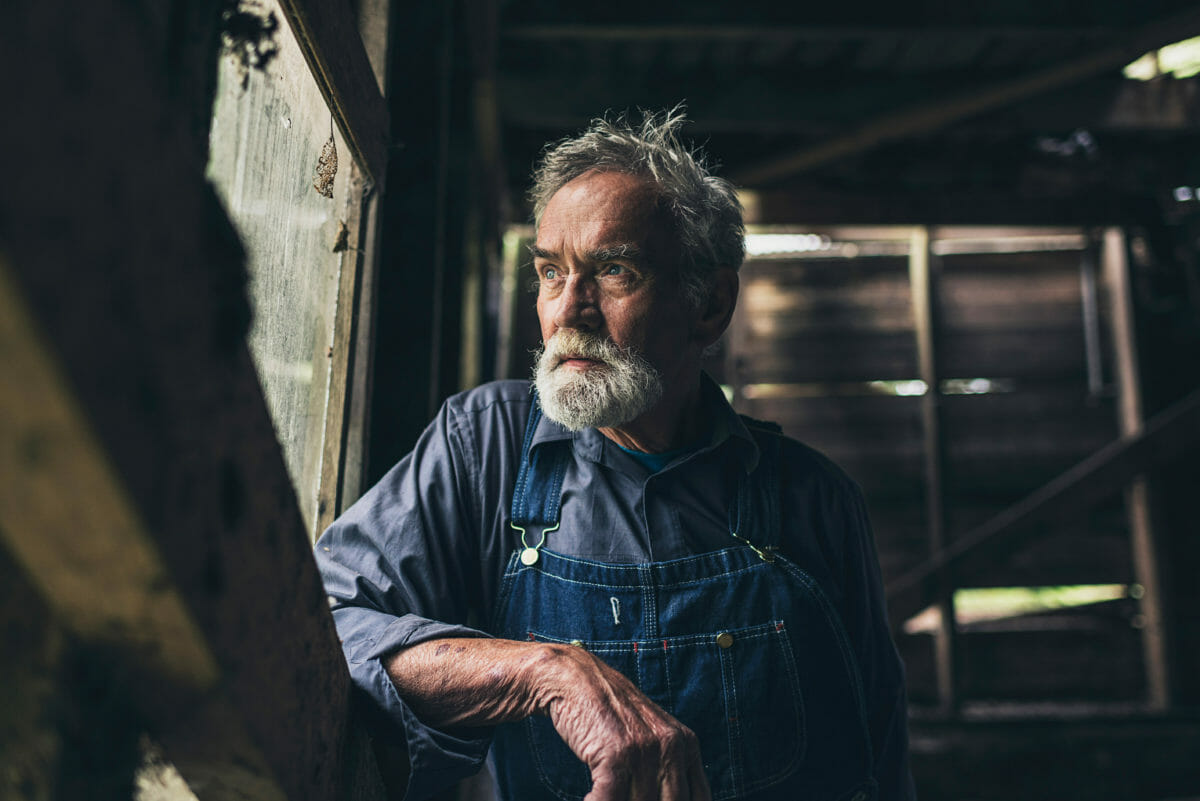The current crisis has brought the injustices of modern agribusiness to light.

There are no more lingering doubts—COVID-19 is a force to be reckoned with. In its might, it reveals enormous weaknesses in our food system. Whole supply chains are breaking down as slaughter plants slow or halt production due to outbreaks among workers. Dairy farmers are dumping thousands of gallons of milk down the drain. Animals are being emergency killed en masse on the farm. And farmers are struggling more than ever.
Our food system is failing consumers, workers, and farmers. The truth is that it has been for quite some time. I should know—for over 16 years I raised chickens for Pilgrim’s Pride, the nation’s second-largest chicken company. Now, fellow farmers and I work to expose the exploitative nature of modern agribusiness: The toll it takes on our families, our communities, our environment, and our lives. The COVID-19 crisis has only brought these injustices to light.
Panic buying caused a surge in demand for meat and dairy products, increasing revenues for agribusiness giants like Tyson Foods and Cargill. But as meat prices soar, farmers see prices for their animals falling, and the farmers I know haven’t seen a pay increase worth a dime. The industry’s recent market manipulations have even drawn suspicion from US senators, who are investigating possible illegal price fixing.
Federal agencies are determining how to spend billions of dollars in stimulus funds. Much of the nearly $24 billion slated for agribusiness is unlikely to reach small family farmers. Neither is the $16 billion in the USDA Coronavirus Food Assistance Program. Of the federal agricultural relief funds prompted by the US-China trade war, over half went to the top 10 percent of agricultural producers. JBS, a mega meat corporation based in Brazil, reported $482.5 million in profits for the fourth quarter of 2019, yet JBS is among the beneficiaries of the bailout. I have no doubt that the COVID-19 stimulus funds will be allocated similarly if we don’t speak up.
Times are extra tough for American farmers, but we’ve been struggling since way before COVID-19. Faced with few viable career paths in dying rural areas, many of us take on massive debt to set up livestock farms. Between 2012 and 2018, the Small Business Administration backed more than 1,500 loans averaging over $1 million each to poultry growers. We become bound by what some have termed “indentured servitude” by entering into unfair contracts with multibillion-dollar meat companies.
Despite promises of steady pay, many of us can’t make ends meet. Twenty percent of contract chicken farmers earn less than $19,000 per year, and nine in 10 farmers polled said that financial issues, business problems, or fear of losing their farms has impacted their mental health. Once you are in debt for the poultry rearing facility, it’s take what they give you—or lose your home and your farm. Throughout my time as a farmer for Pilgrim’s Pride, I never netted more than $7,000 in a year after paying the mortgage and other expenses related to the chicken operation.
But these numbers don’t paint the whole picture. I’ve known farmers so deep in debt they could barely pay their family’s medical bills, much less send their kids to college. Many farmers get in the business only to realize it’s a trap. Companies expect them to raise animals genetically destined for disease. One sick flock and you’re underwater. Just like the chickens themselves, farmers are regarded as completely expendable.
I got out of the chicken business. I’ve transitioned to growing industrial hemp, which requires substantially less water, eliminates pollution from animal waste, significantly reduces carbon emissions, and allows me to employ more people.
Countless other farmers want out too, but it’s hard to see the light of day, let alone consider launching a new business, when you’re buried under debt. Farmers need their own stimulus package, but not one that will further entrench the status quo. Rather than continuing to prop up Big Ag—whose practices are clearly failing us in this time of crisis—stimulus funds should help farmers transition out of industrial animal farming. We’ve got to help farmers participate in the effort to build a new food system that is resilient, sustainable, and healthy for everyone. COVID-19 is proving the unsustainability of our current system, with processing plants running slowly or not at all and animals being depopulated on farms as a result. Buying local from family farmers is much more sustainable and fairer to the farmers.
A great tragedy of our present situation is that the average American farmer is 58. This places him among the most vulnerable to COVID-19. What does it say about our society that we’ve abandoned our most vulnerable, not to mention our most essential workers, and the very people who put food on our plates?
Mike Weaver is a former poultry farmer who now runs a hemp farm, Redbud Hill Naturals. He has been president of the Contract Poultry Growers Association of the Virginias for the past 12 years.
Mike, I couldn’t have said it any better. It’s a travesty the way the “small” farmer is always put on the back burner. The vast majority of the population has NO idea how their food gets to them, nor do they particularly care. For those that do care, education is crucial. Our current system is set up to implode and the only way to “FIX” it is to support our local farmers and paying them a living wage for our food. The other option is to keep going down this path until it is too late…
This is sad reading, we need a radical change of food systems
I want to learn and to be able to assist farmers in learning a new way of life. Plant based lives. Growing and feeding the world and help repair the world from the abuse of putting meat on people’s plates.